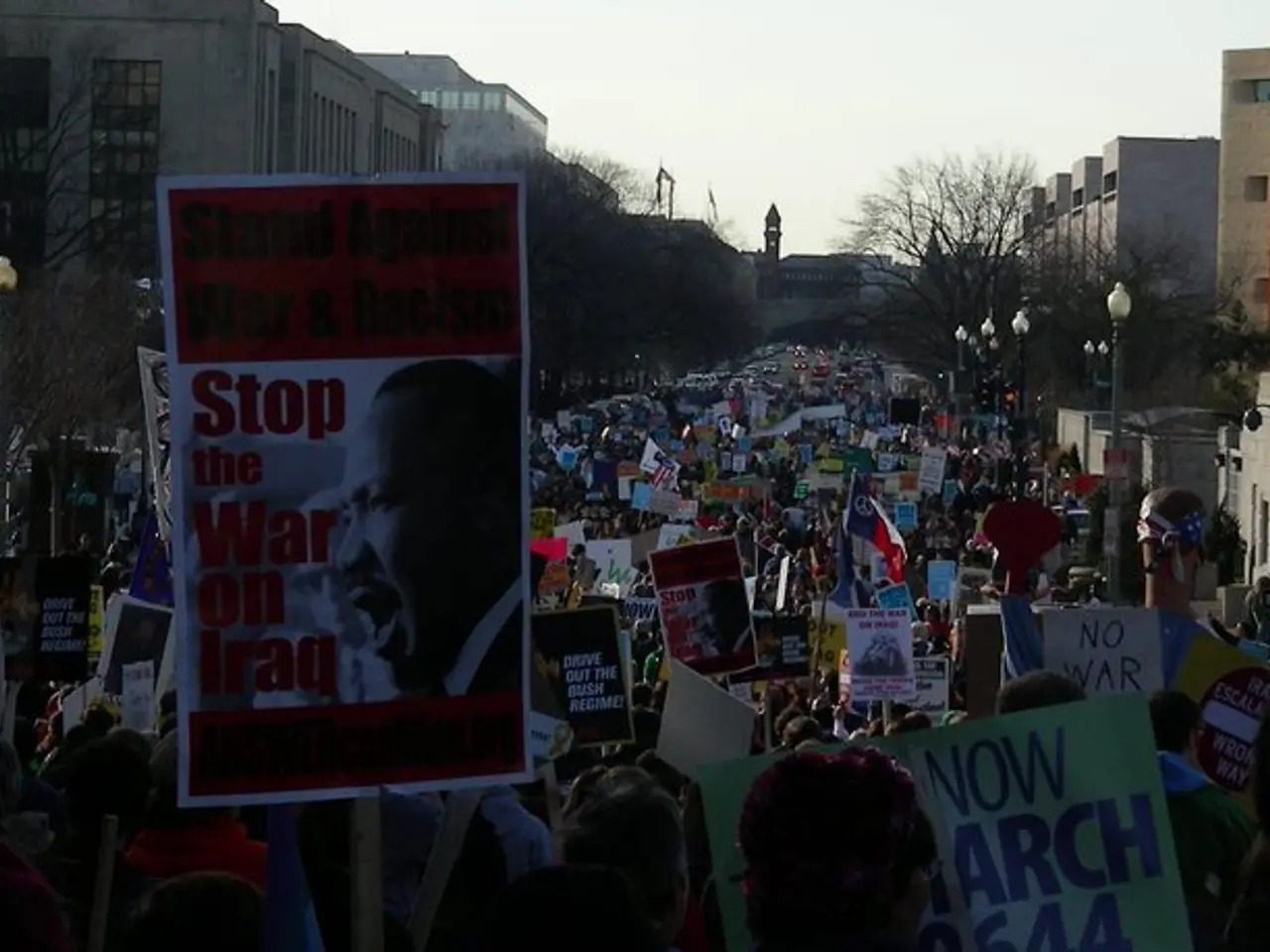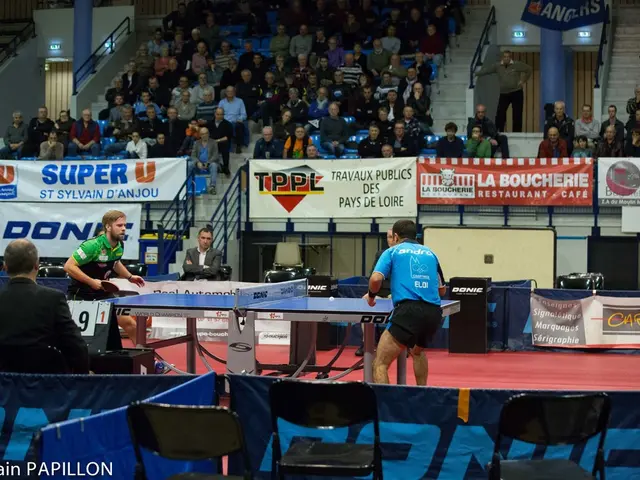Unrest in Serbia's counter-administration demonstrations, marked by acts of aggression
The political landscape in Serbia is currently undergoing a significant shift, with escalating protests against President Aleksandar Vucic's leadership. These demonstrations, primarily led by young people and students, have been ongoing for over nine months and have intensified in recent times.
The protests, initially peaceful in nature, have been met with excessive force, arbitrary arrests, and aggressive policing by security forces. This includes the deployment of unidentified or plainclothes officers. Serbian authorities and Vucic's ruling party have been accused of suppressing dissent through crackdowns that involve intimidation of students, educators, and civil society actors, alongside pressure on academic institutions through salary cuts and funding reductions.
The protesters' main demands are for early elections and political accountability. They view Vucic's leadership as authoritarian and express frustration at the lack of political reform and restrictions on democratic freedoms. The police response has included extensive use of tear gas, arrests, and controlling protest routes, causing frequent violent confrontations.
International actors such as the UN have called on the Serbian government to halt the crackdown on peaceful protest movements, respect human rights, and engage in genuine dialogue. The security situation remains volatile, with ongoing street closures and potential for further clashes warned by the U.S. Embassy in Belgrade.
The recent escalation of protests was triggered by the collapse of a newly renovated train station canopy in Novi Sad on November 1, 2024, resulting in 16 deaths. This incident has added fuel to the protesters' demands for change, as independent experts and opposition figures blame shoddy workmanship and corruption under Vucic's government for the tragedy.
The situation in Serbia is far from resolved. President Vucic has threatened to "cleanse" Belgrade and Novi Sad to prevent a "civil war," while referring to the protesters as "thugs and murderers." He has also expressed gratitude to his supporters for protecting SNS party headquarters from protesters.
The Tanjug news agency reported Vucic's statements regarding the protesters and his intentions to "cleanse" cities. Protesters targeted SNS party headquarters, where they were met by police cordons and SNS supporters. In Novi Sad, 64 civilians and five military police officers were injured during the clashes at the headquarters of Vucic's SNS party.
As the situation continues to unfold, it is crucial for all parties involved to prioritise peace, dialogue, and respect for human rights. The international community will continue to watch closely as Serbia navigates this challenging period in its history.
[1] BBC News. (2025, August 15). Serbia: Thousands protest against President Aleksandar Vucic. Retrieved from https://www.bbc.com/news/world-europe-57986884
[2] Human Rights Watch. (2025, September 15). Serbia: Crackdown on Protests Violates Rights. Retrieved from https://www.hrw.org/news/2025/09/15/serbia-crackdown-protests-violates-rights
[3] Reuters. (2025, October 15). U.S. Embassy warns of potential clashes in Serbia amid protests. Retrieved from https://www.reuters.com/world/europe/us-embassy-warns-potential-clashes-serbia-amid-protests-2025-10-15/
Read also:
- Massive 8.8 earthquake hits off the coast of Russia's Kamchatka Peninsula, prompting Japan to issue a tsunami alert.
- Court petitions to reverse established decision on same-sex marriage legalization
- Independence supporters in New Caledonia refuse agreement offering authority without a vote on sovereignty
- Proposed Standardization of Food Labeling Laws Among Member States by the Commission








